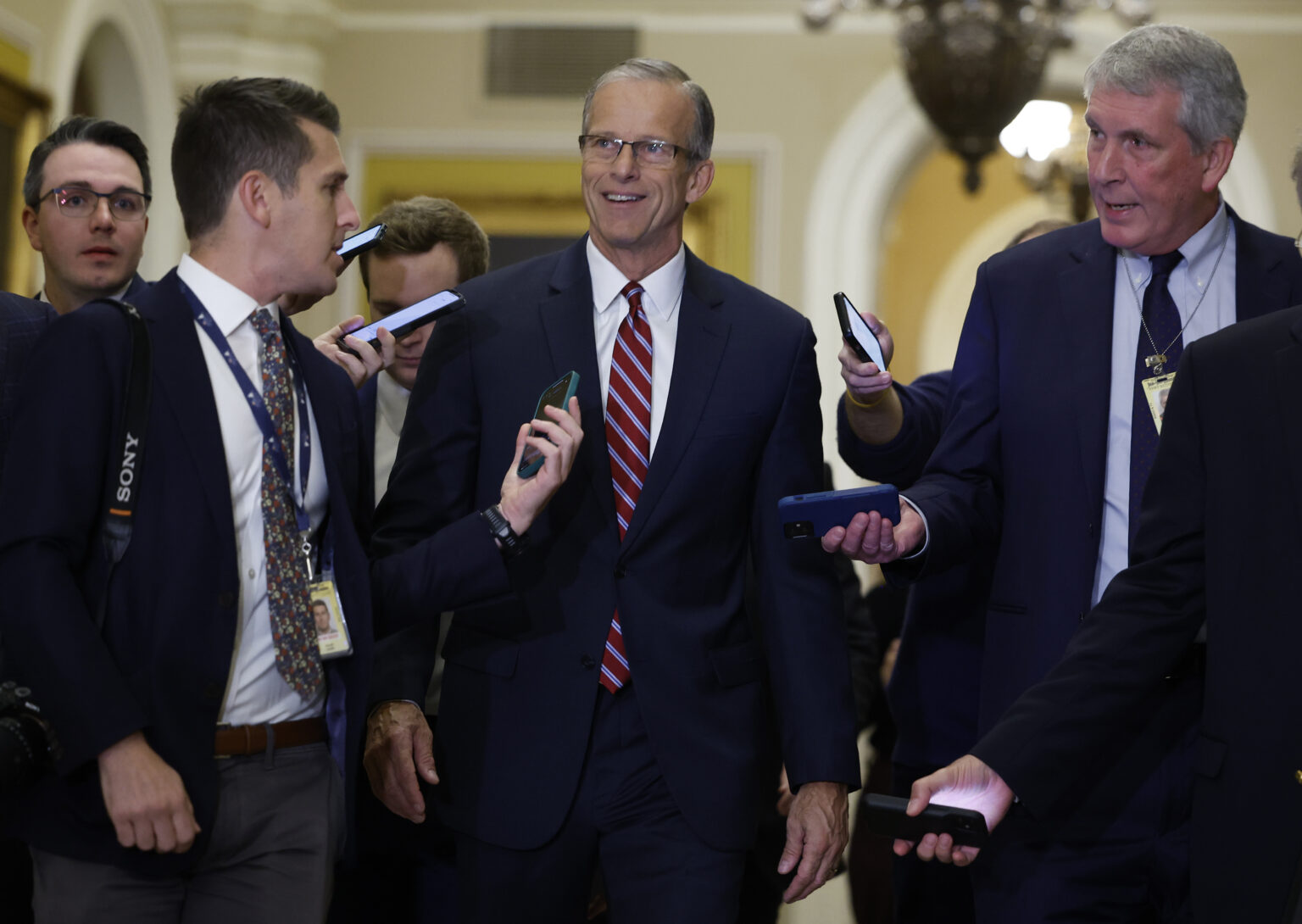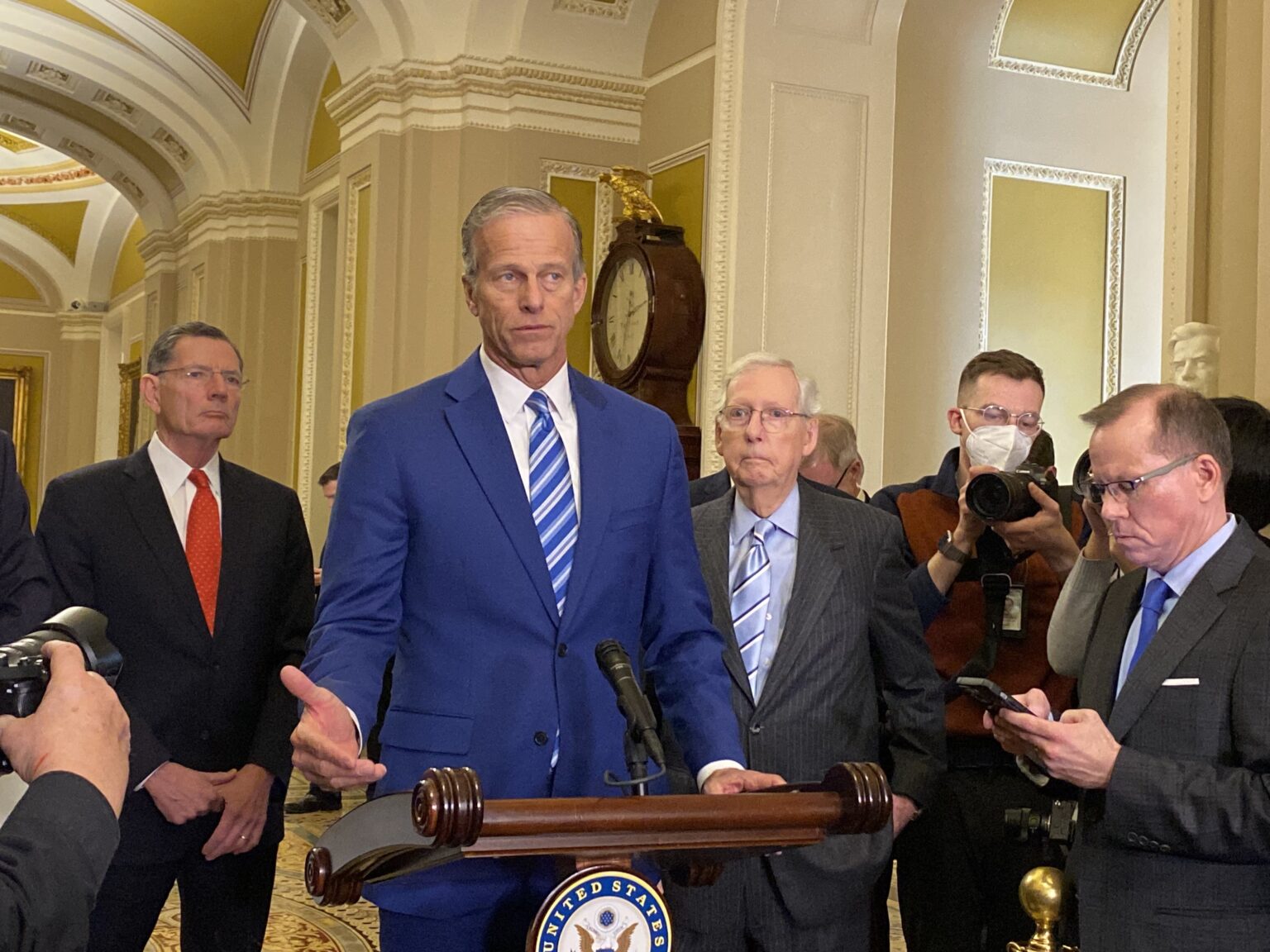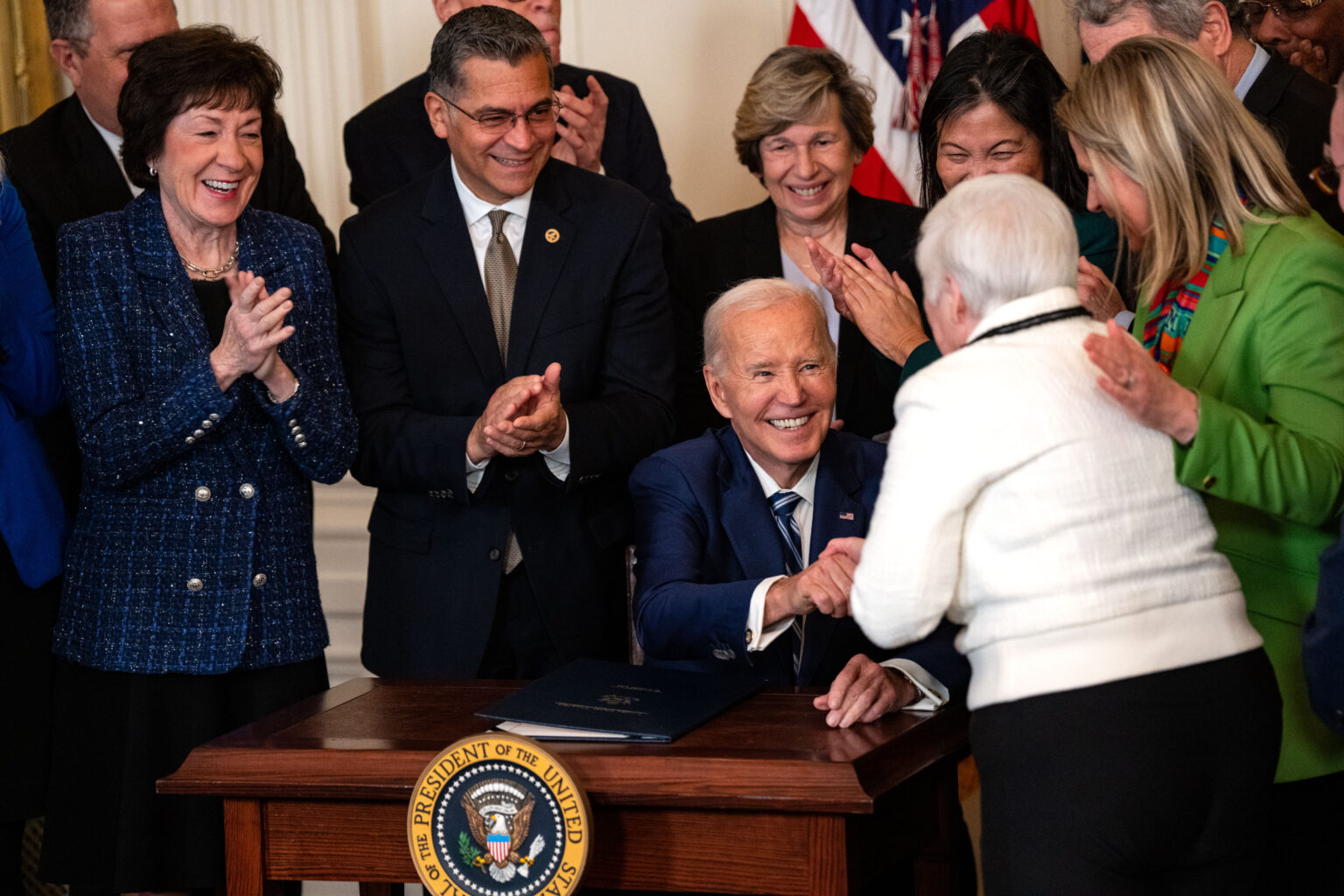WASHINGTON – Although GOP senators stated that a very thin House majority will likely determine how comprehensive their policy ideas are, Senate Republicans convened behind closed doors Tuesday to strategize the future of the unified control of government they won in the November elections.
Before focusing on taxes in a separate bill later next year, Republicans intend to use the convoluted budget reconciliation process to cover immigration and energy in a single bill. It is yet unclear what those measures entail or how they might impact policy.
The GOP will be able to circumvent the 60-vote Senate legislative filibuster, which normally requires bipartisanship on high-profile issues, thanks to the budget reconciliation procedure. Since reconciliation necessitates a majority vote in each chamber, it is typically employed when one party controls the White House, Senate, and House.
Since Democrats are unlikely to be involved in talks or vote for the final versions of reconciliation bills, GOP lawmakers in the House will have very limited opportunity to oppose them in the future session of Congress, as the Republican majority in the House will have shrunk to only 220 seats.
Since former Florida Representative Matt Gaetz, who resigned to concentrate on his attorney general confirmation process before resigning, is not going to take his oath of office, GOP leaders will also be down one seat from the start.
Rep. Michael Waltz of Florida, who will serve as Trump’s national security adviser, and Rep. Elise Stefanik of New York, who is nominated to be ambassador to the United Nations, are anticipated to leave Congress early next year, leaving GOP leaders shorthanded by three seats until special elections. That would result in a split of 217–215.
If Republican senators miss a vote or are absent due to illness, those incredibly close margins might cause the chamber to become impassed. If a few of Democrats’ members are absent, there is even a chance that they will have more votes on the floor than Republicans.
Republicans held 241 House seats in 2017, the last time they controlled both the White House and Congress, when they approved their tax bill through reconciliation. This is a much larger margin than they will have next year.
Thune says options presented
Sen. John Thune of South Dakota, who will take over as majority leader in January, stated that senators are figuring out how to best utilize the chance that reconciliation presents to accomplish many of the president’s and our goals and the issues he ran on.
In reference to 2025, Thune stated, “And, you know, there is obviously the tax piece, but we have until the end of the year to do that.” Therefore, the question is how we actually use the chance for reconciliation.
Therefore, we offered a variety of possibilities, all of which are being contemplated by our members. We’ll see where it ends up, but in order to choose the right course of action, we must collaborate with the House of Representatives and, of course, the new President Trump.
Given the slim passage margins, Sen. Thom Tillis of North Carolina said Republicans still have a lot of work to do to iron out the specifics of the two packages.
“There is some reconciliation, pun intended, that needs to be done before reconciliation if you look at the priorities of one end of the spectrum for the House caucus and the other end on the border,” Tillis stated.
Throughout this Congress, House Republican leaders have occasionally found it difficult to maintain the backing of both far-right and centrist GOP lawmakers for significant policy proposals. Leaders of the GOP were forced to constantly walk a metaphorical tightrope while drafting legislation because adding suggestions or amendments from one side meant that the GOP frequently lost votes from the other.
In the upcoming Congress, Republicans may have a smaller House majority, which would probably cause leadership problems as they discuss the reconciliation proposals with their families.
Johnson stops by Senate GOP huddle
House Speaker Mike Johnson, R-La., attended the Senate Republican meeting, according to Sen. Shelley Moore Capito, R-W.Va., as the two chambers try to maintain unity as January approaches.
I believe that our goals are fairly similar. She said, “It’s just getting there.” The details, you know, are crucial.
“The election results sent a clear message to the GOP about what policy changes Americans expect to see during the next two years,” said Capito, who will take over as chair of the Republican Policy Committee next year.
In some respects, it’s extremely obvious what the voters want us to do, Capito added. And we can start by going over the most obvious ones.
Susan Collins, a senator from Maine who will be the first female Republican to lead the Senate Appropriations Committee next year, warned that the reconciliation process takes a great deal of preparation and cooperation.
“Those of us who have experienced reconciliation before know how complicated it is,” Collins added. Before we depart for Christmas, I would like to see the disaster supplemental pass because I believe we will have a very busy start to the year.
Additionally, I continue to maintain that it would be crucial to attempt to complete the FY 25 appropriations bills. At this point, I understand that will have to wait until January. However, I’m still praying that March doesn’t arrive since there will be a lot of work to do with reconciliation and the president’s new budget, which is due on the first Monday of February.
Delayed spending bills
The deadline for the twelve annual federal funding bills was meant to be finished by October 1st, but Congress extended it until December 20th by using a stopgap spending bill.
Congressional leaders are currently discussing the duration of a second continuing resolution because they haven’t made any significant progress on the full-year bills.
Republican efforts to pass their first reconciliation package before focusing on the second will probably coincide with the accumulation of appropriations work at the start of next year.
In the face of yet another narrow majority, Iowa Senator Chuck Grassley expressed confidence that House GOP leaders will be able to whip the votes needed to adopt the two reconciliation measures next year.
Before tackling the major issues, we must demonstrate that we are acknowledging the mandate from the previous election and have something modest but impactful, Grassley stated.
He claimed that House Republicans are aware that they have a mandate to fulfill. They are also aware that they must deliver.
We have a directive from the American people
As specifics about how the two reconciliation bills will alter policies come to light in the coming weeks and months, Johnson will be able to maintain unity among the House Republican Conference’s far-right and moderate members, according to Alabama GOP Sen. Katie Britt.
Britt stated, “Speaker Johnson is aware that we have a slim majority in the House.” And we know that the American people have given us the order to actually get things done, so I believe that they will resolve the problems over there. And I believe that’s what we’ve come together to do.
Sen. Ron Johnson of Wisconsin responded, “Hopefully, we can come to an agreement on all of these issues when asked about the slim margins Republicans will have.”
We’re going to try to pass his agenda, of course, because that’s what President Trump ran on,” he said.
Republican Senator John Boozman of Arkansas stated that they will have to wait but that their timeline is as soon as feasible.
There will be a lot going on, but we must prioritize the budget in order to get things started as soon as feasible. Boozman said.
The reconciliation process cannot begin unless a budget resolution is passed by Congress. That spending and tax plan does not become legislation since it is not a bill. Rather, it establishes objectives for the 10-year budget window for Congress.
For the past few months, Congress has mostly neglected the dozen appropriations bills that are necessary to properly pay federal departments and agencies.
This report was contributed to by Ariana Figueroa.
Note: Every piece of content is rigorously reviewed by our team of experienced writers and editors to ensure its accuracy. Our writers use credible sources and adhere to strict fact-checking protocols to verify all claims and data before publication. If an error is identified, we promptly correct it and strive for transparency in all updates, feel free to reach out to us via email. We appreciate your trust and support!



